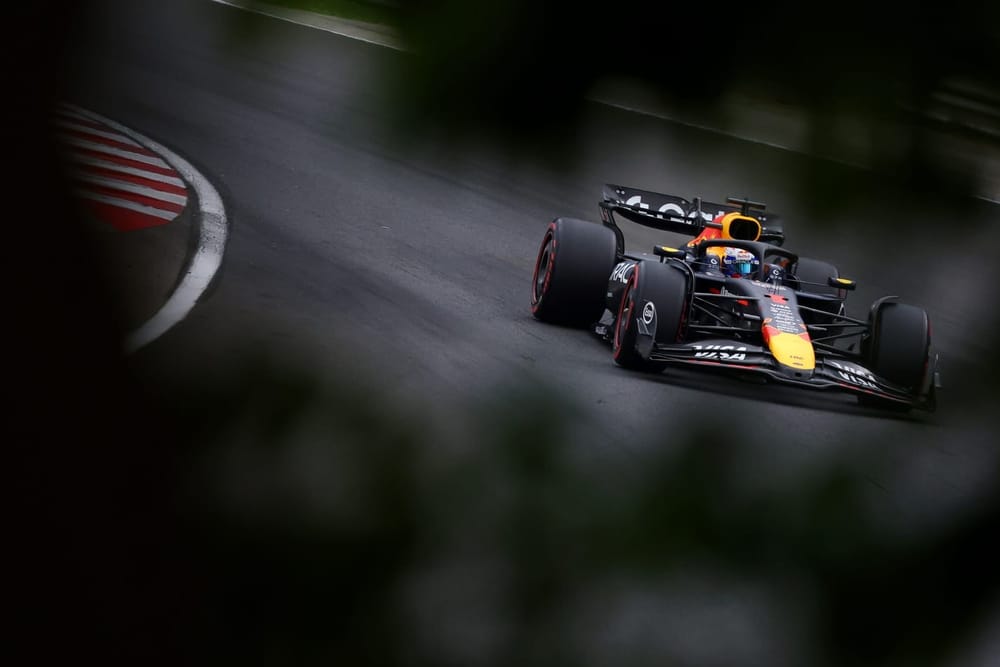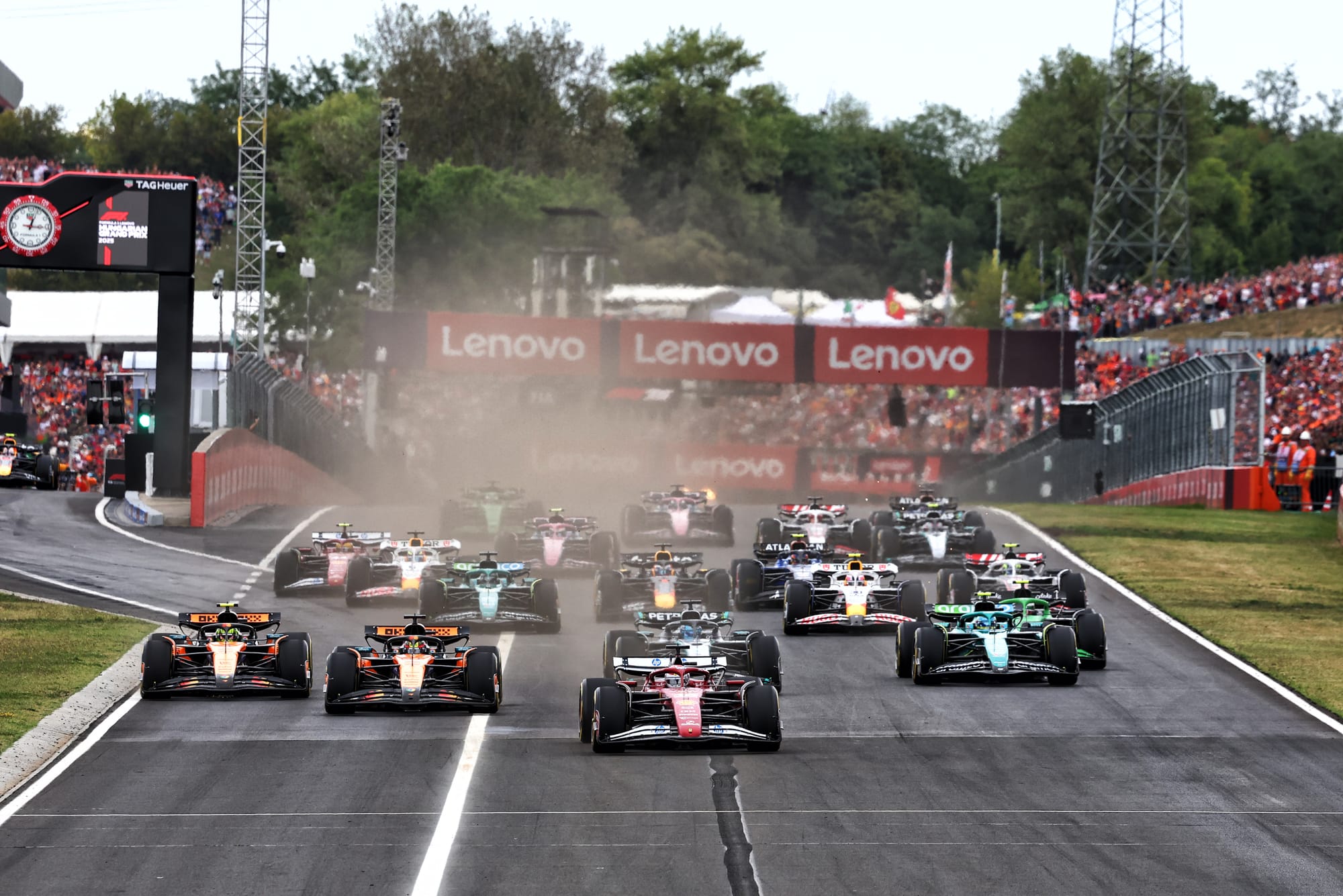Max Verstappen's ambitions for the remainder of the 2025 Formula 1 now amount to just having "good weekends here and there" after Red Bull's limitations were brutally exposed.
Finishing ninth on merit in the Hungarian Grand Prix was an incredibly limp way for this team to sign off for the summer break, with Verstappen now 97 points behind championship leader Oscar Piastri.
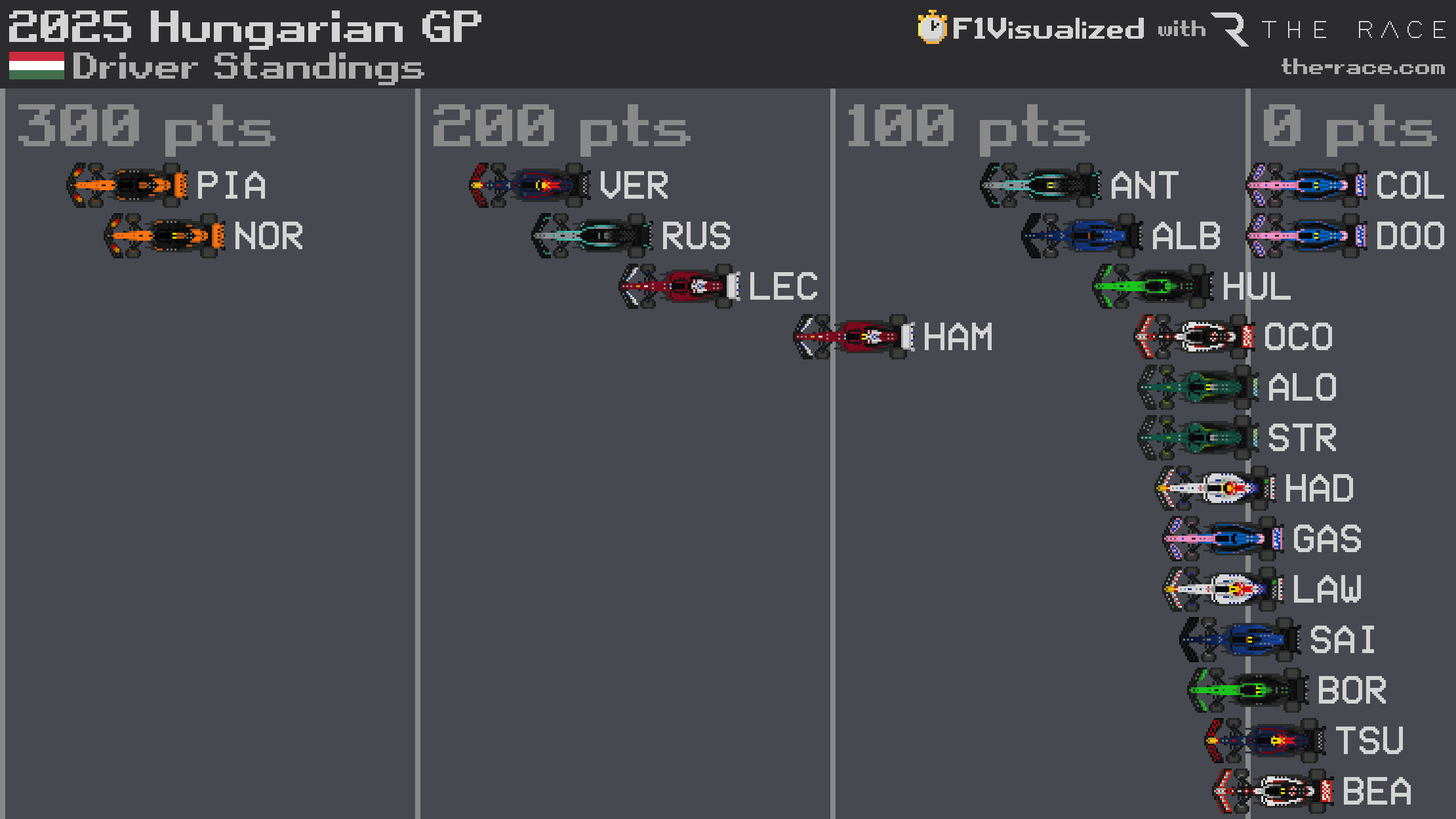
If anything, he's more likely to be jumped by George Russell for third in the standings than defend his title. The Mercedes driver is now just 15 points back.
Red Bull's one-car team status means it is absolutely nowhere in the constructors' championship too - fourth, 42 points adrift of Mercedes and with just 35% of the points of McLaren.
Hungary continued a tricky recent run - Spa sprint win aside - hence Verstappen's reduced expectations for the rest of this year, which says everything about the bad place Red Bull finds itself in.
Red Bull had already recognised its bleak trajectory and outlook a little while ago when it moved to axe team principal Christian Horner mid-season. And Horner's replacement Laurent Mekies said "we don't underestimate what is ahead of us" as he adjusts to the reality of leading a frontrunning F1 team for the first time.
"And the biggest difference with the competition [in the front versus] in the midfield is that at every race weekend you come back and there is only one answer to: 'Did you win or did you not?'" said Mekies.
"And that sets the level of expectation of everyone."
But what happened in Hungary did catch Red Bull and Verstappen off guard. So the biggest lingering problems might be worse than they thought.
No matter what Red Bull changed, Verstappen said "nothing really gave a direction" - something technical director Pierre Wache was also baffled by. Which explains why there was no repeat of the turnarounds that Verstappen and Red Bull have pulled off at other times this year (and last); think of the victories in Japan and Imola after tricky Fridays.
The problem in Hungary was that Red Bull never really worked out what was wrong, and Verstappen said repeatedly that if the team knew "we would've changed it already".
So while Hungary was never going to be Red Bull's strongest weekend given it struggled there in 2024 too, Verstappen said "no one expected" it to be as bad as it was.
Where McLaren is 'killing' Red Bull
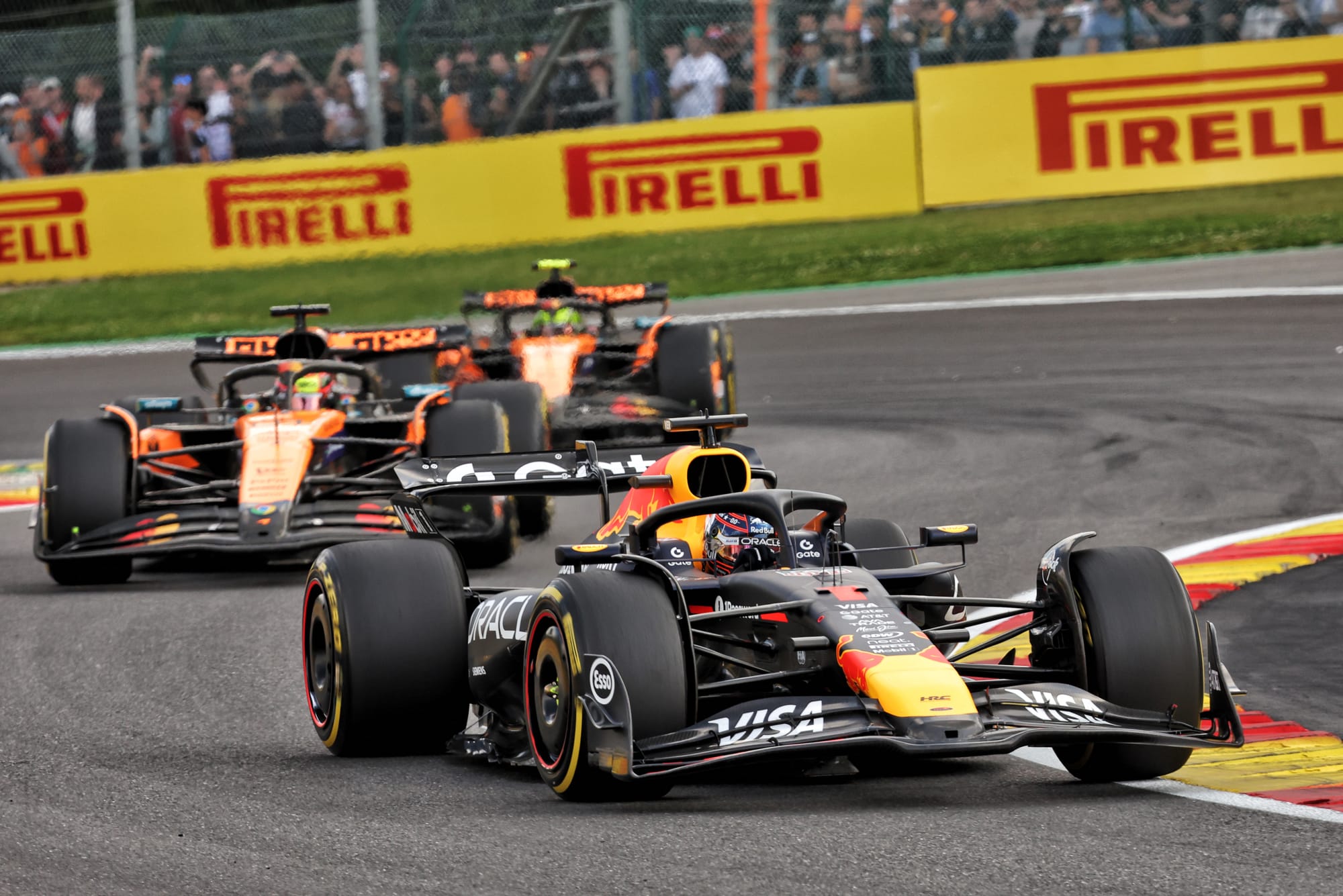
Red Bull was brutally exposed by the demands of the Hungaroring's long, medium-speed corners in terms of aerodynamic performance and how much those corners ask of the rear tyres.
Even a qualifying lap requires tyre management in Hungary, which makes the set-up even more compromised than usual.
Red Bull's car still has such a narrow window that when it has to be tailored to certain speed ranges, it can get easily lost.
And in a bid to find a workable compromise between rear-protecting understeer over a qualifying lap and decent long-run duration, the car balance can easily drift into an area where Verstappen feels he doesn't have enough front end to rotate the car.
Much of what the drivers and team said in Hungary came down to not switching the tyres on, indicating that, to set the car up for what the Hungaroring needs, mechanically it was missing something in getting the tyres in the optimal working range and keeping them there.
That's why Red Bull was struggling in low- and medium-speed corners, where the mechanical grip from the tyre bonding to the track is more critical.
But it was also no coincidence that the weekend included Verstappen speaking longingly for a trait he's seen in the pacesetting McLaren.
The MCL39 looks after its tyres very well, but Verstappen's intrigued by more than that. McLaren excels on tracks with medium-speed corners, and its team principal Andrea Stella had pinpointed that as one of the reasons it was so strong at the Belgian GP.
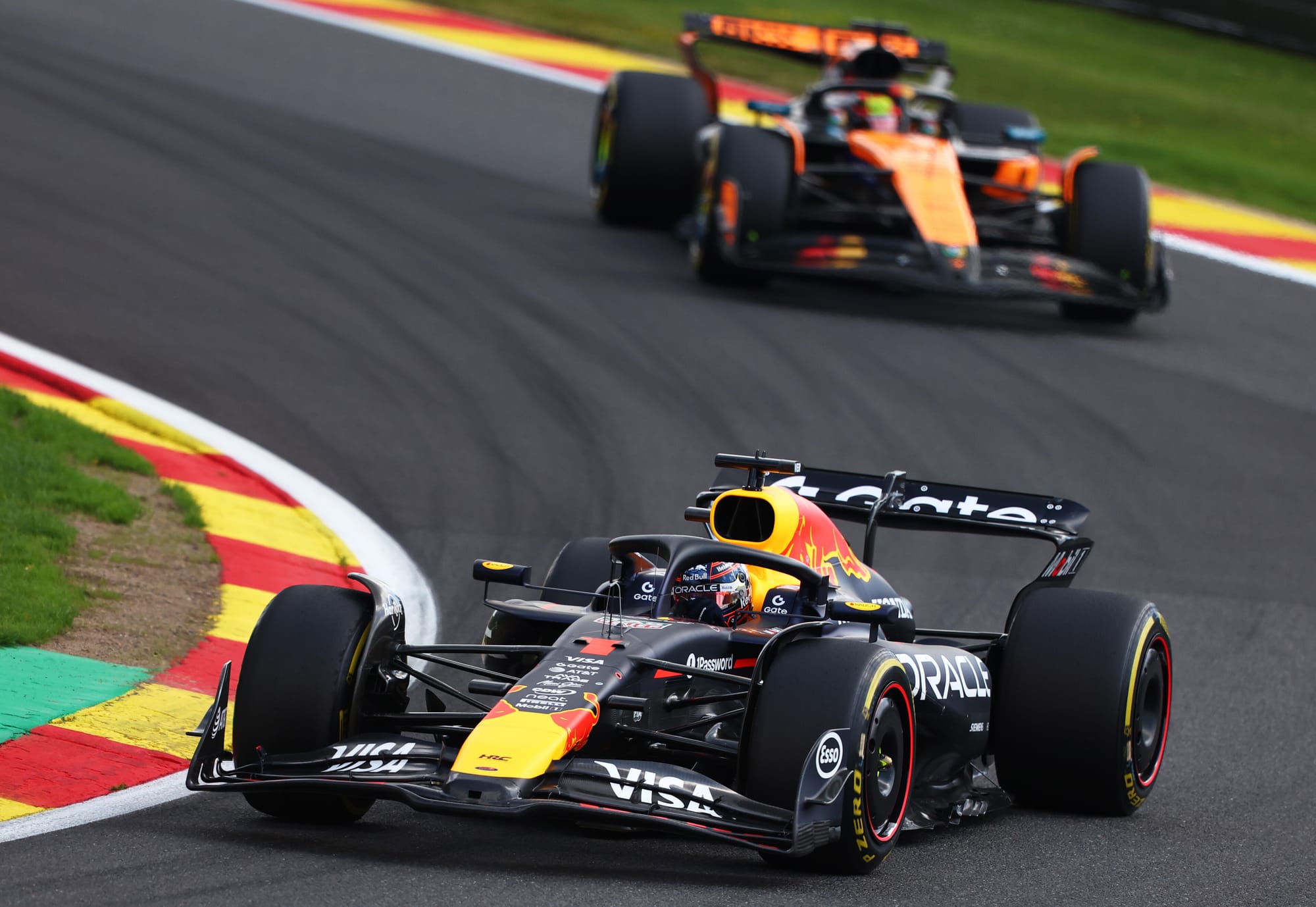
Verstappen said that McLaren's medium-speed performance is "incredible compared to everyone else on the grid" and Mekies said "where they are killing us on most tracks is the medium-speed corners".
Pinpointing how strong the McLaren's front end is in such corners - which are in a fairly wide range from around 95mph to 135mph - without losing the rear, Verstappen said "that's something that we have to try and achieve".
In Q2 at the Hungaroring, the most relevant session in terms of outright pace, Verstappen lost more than two tenths of a second to the fastest McLaren in pretty much three corners: the long right of Turn 5, and the left-right elongated Esses after the chicane.
Another tenth went in the final corner, with the rest of the gap explained by McLaren's strength in slower corners - although in extremely slow corners, such as Turn 1, the two cars were more equal.
Unsurprisingly, the only places Verstappen was fractionally faster at all were the track's only two high-speed turns: the Turn 4 left-hander at the top of the hill at the start of the middle sector, and the Turn 11 right-hander at the end of it.
Why upgrades haven't saved Red Bull
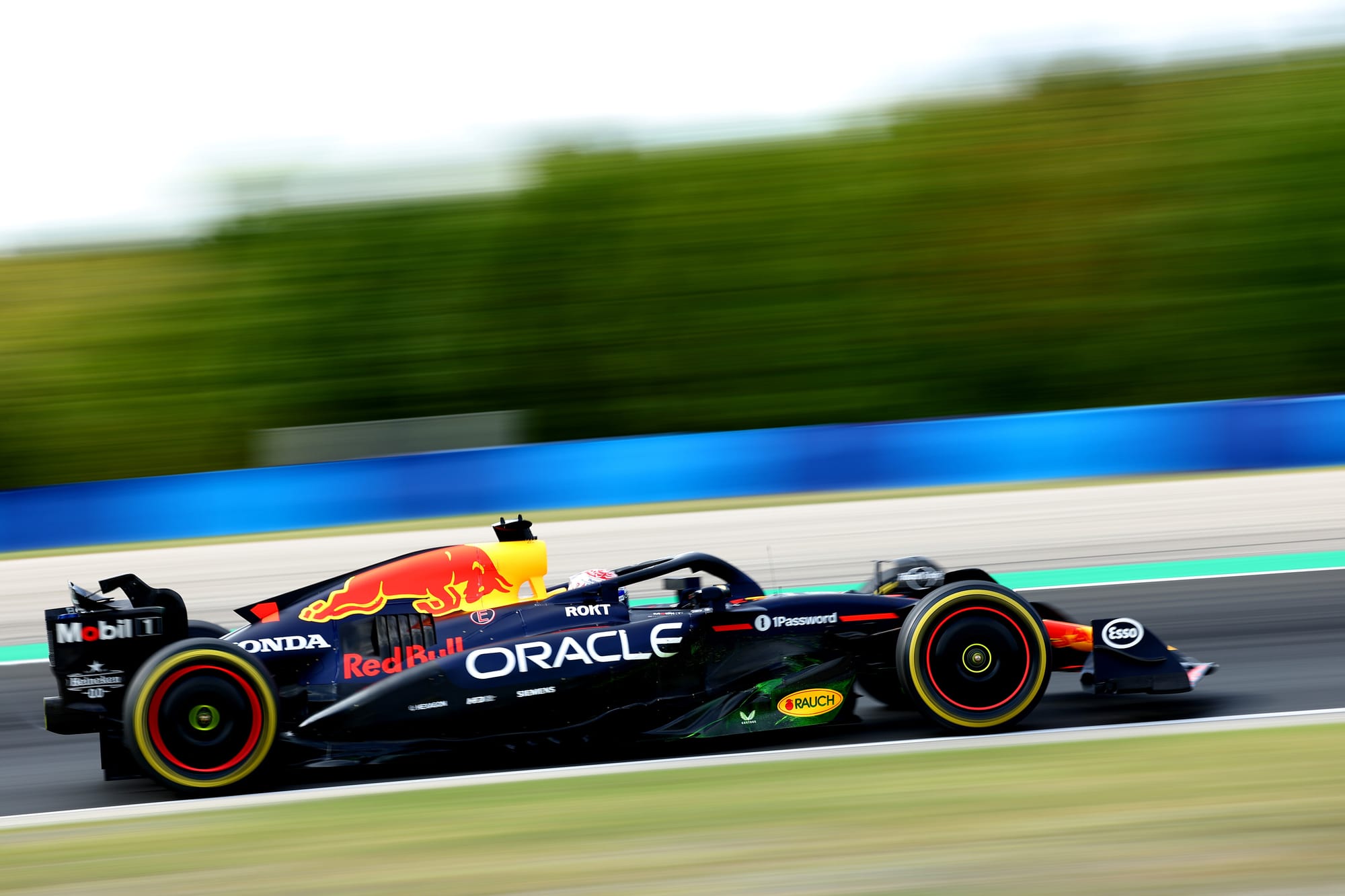
Verstappen's form, like Red Bull's, has regressed as the season has gone on.
He averaged nearly 18 points per event over the first seven grands prix - the equivalent of a second place each time, which is impressive considering the strength of the two McLarens.
In the seven races since, though, his points average has dropped to 12.2 - equivalent to fourth. Which feels more in keeping with Red Bull facing an ever bigger battle to even be second-best.
The yo-yoing form of Mercedes and Ferrari has made for an erratic fight behind McLaren but, apart from in Monaco, Red Bull has stayed in around the same area.
That, unfortunately, is part of the problem. It has brought a lot of upgrades in that time but is still completely at the mercy of track characteristics.
When it comes to a circuit with high-speed corners, Verstappen is a real thorn in the side of the McLarens - usually because he's hustling a car trimmed out in terms of wing levels as it was at Silverstone or in the sprint race at Spa.
Get to pretty much anywhere else, though, and it is damage-limitation mode.
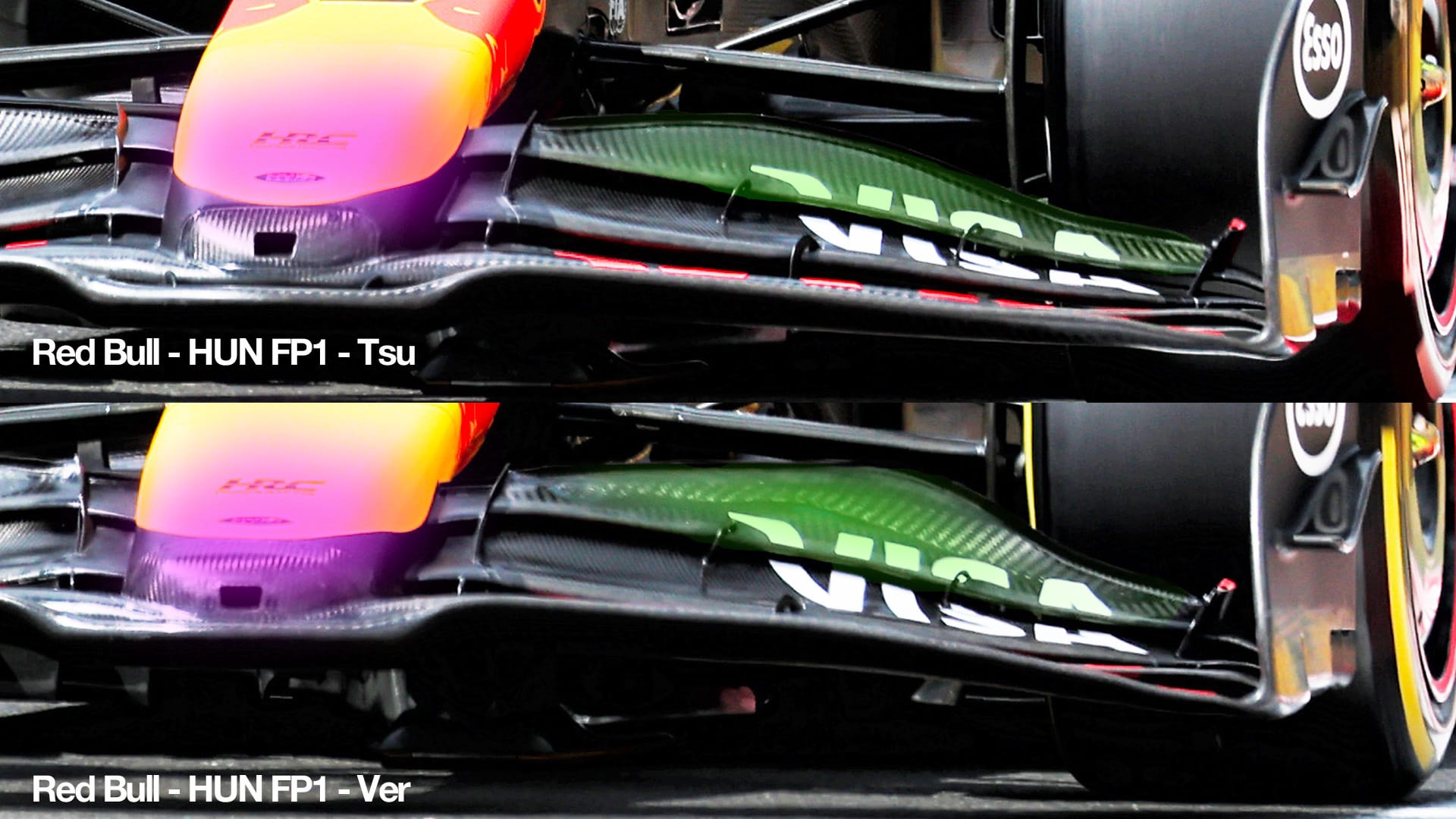
That's disappointing considering how prolific Red Bull's development has been. It has brought new front wings, sidepods, floors, and rear wings over the last few months; pretty much every aerodynamic surface has had not just one but multiple updates.
And yet Verstappen said the car is "still not where I need it to be" and is "limiting me from going fast".
There is a degree of realism within Red Bull about this, because the upgrades have worked and have made the car faster, but they have not cured underlying limitations.
Red Bull admitted that the gains haven't been enough and don't fix the balance problems either. That's why the car's still capable of being both slow and hard to drive, which is so frustrating for Verstappen at its worst, as it was in Hungary.
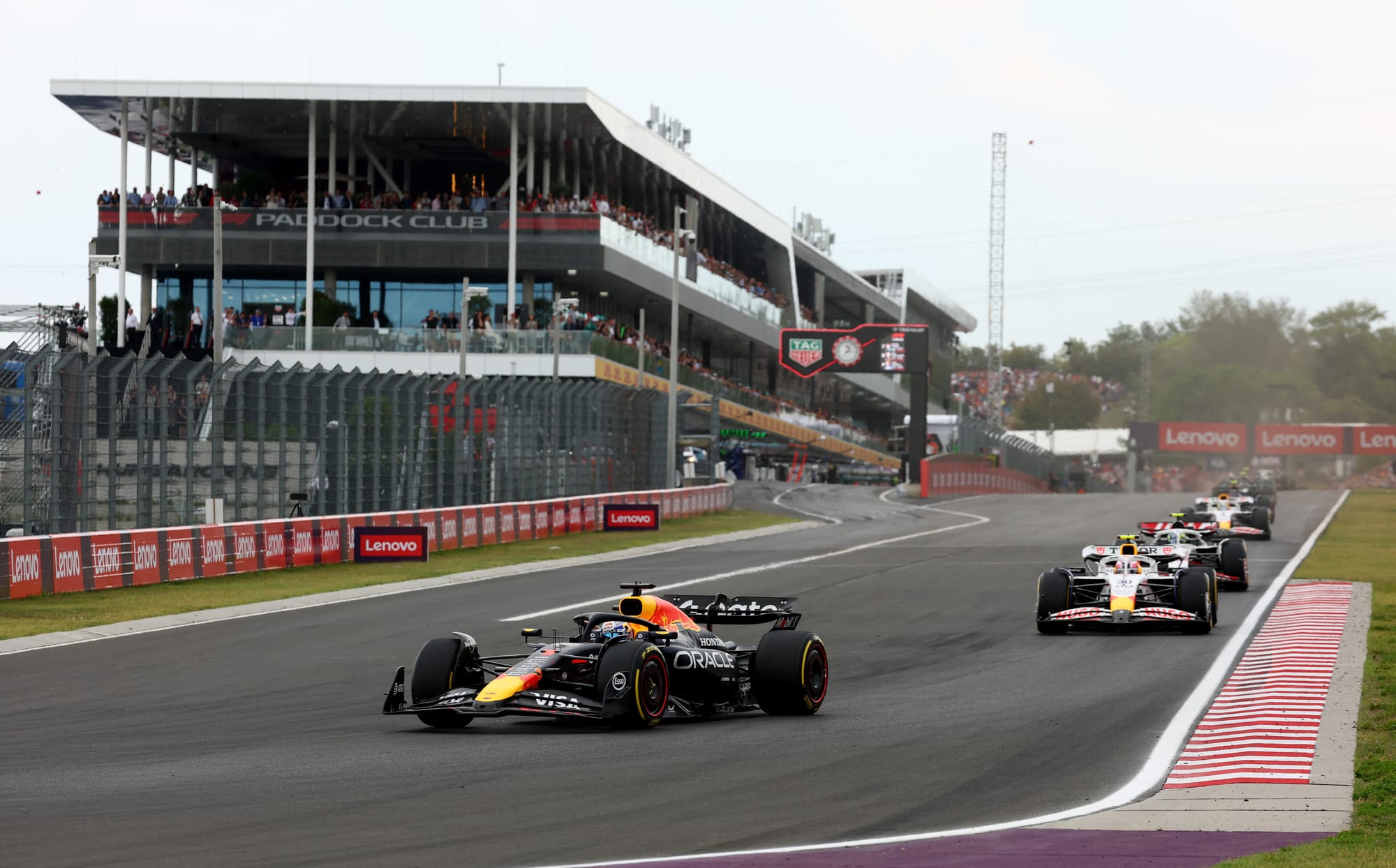
Part of the problem is that McLaren keeps moving the goalposts. It has set the pace since the start of the year, and not exactly stood still.
In fact, Stella said in Hungary that people may have missed just how much McLaren's own car has improved across 2025.
Over the past two years, McLaren waited and brought big aerodynamic packages that were more obvious because it was still on such a steep development curve.
Now it is in a more conventional phase of bringing various small updates across many races: and not just aero ones either. It has tweaked its front and rear suspension in different ways to improve driver feeling and traction, to mitigate what few weaknesses its car does have and accentuate the positives even further.
And that's made it tough for Red Bull to keep up, let alone outdevelop McLaren.
Is there any silver lining?
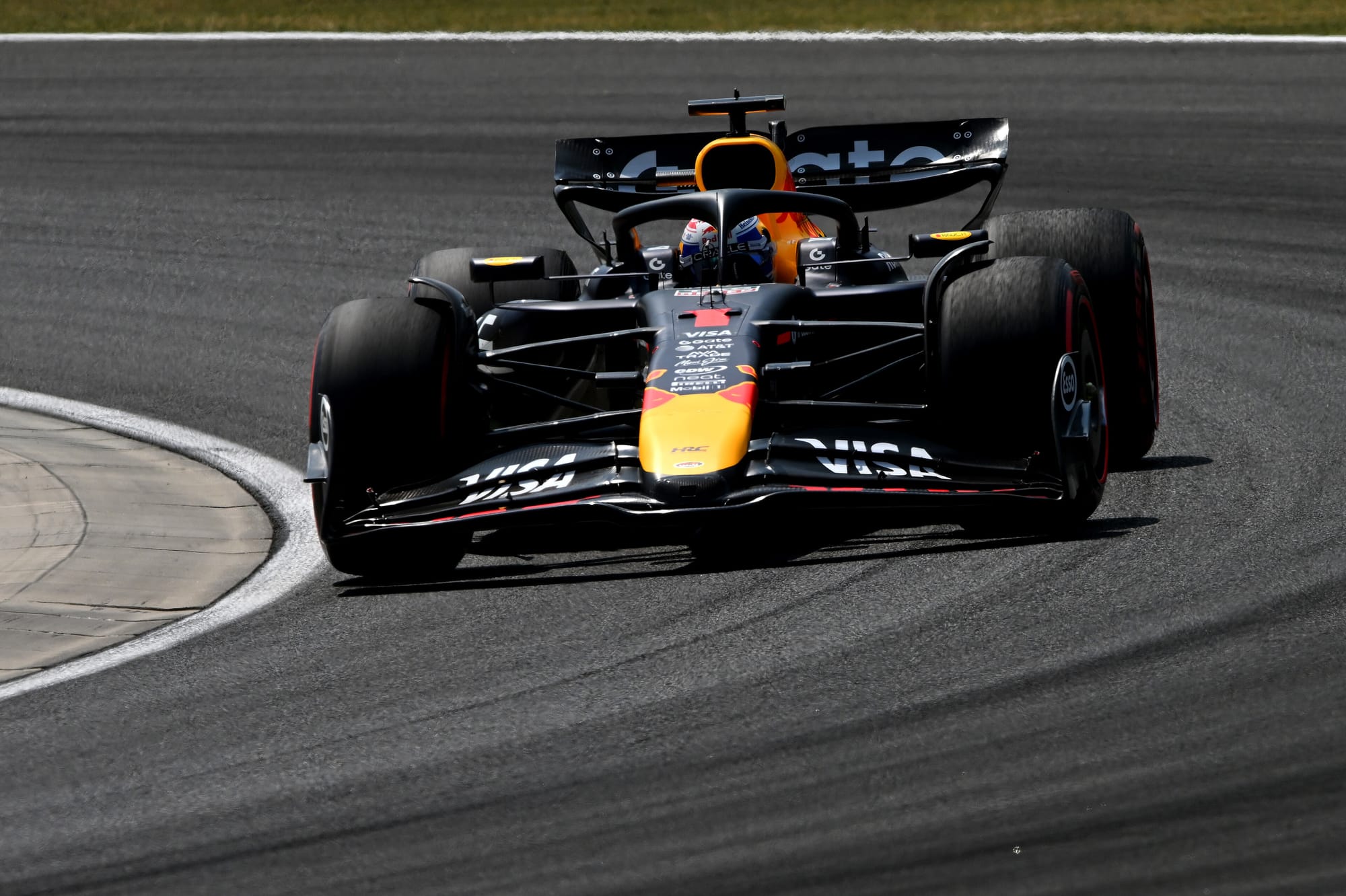
Red Bull's real focus now is on the future. Verstappen is locked in for 2026, and has continued to hint he is happy to stay for longer if Red Bull convinces him it is the right place to be. His contract runs to 2028, albeit with exit clauses, and Verstappen loves the idea of being at Red Bull his entire career.
Convincing Verstappen will come down to car performance, especially now things are more settled behind the scenes.
The latter days of the Horner era became dominated by in-fighting and tension at management level. Red Bull's parent company and the likes of Helmut Marko can pretend there are, and have been, no 'factions' all they want - but if that was the case, Horner wouldn't have been surprisingly sacked.
The reality is that Red Bull felt the team needed new and focused leadership. And it has to be said that Verstappen has responded pretty well to the change, even if he wasn't calling for it himself.
While he did not want to say too much about how things have changed, he responded enthusiastically when The Race asked him about Mekies' arrival as team boss being an opportunity to push for changes there may have been resistance to in the past.
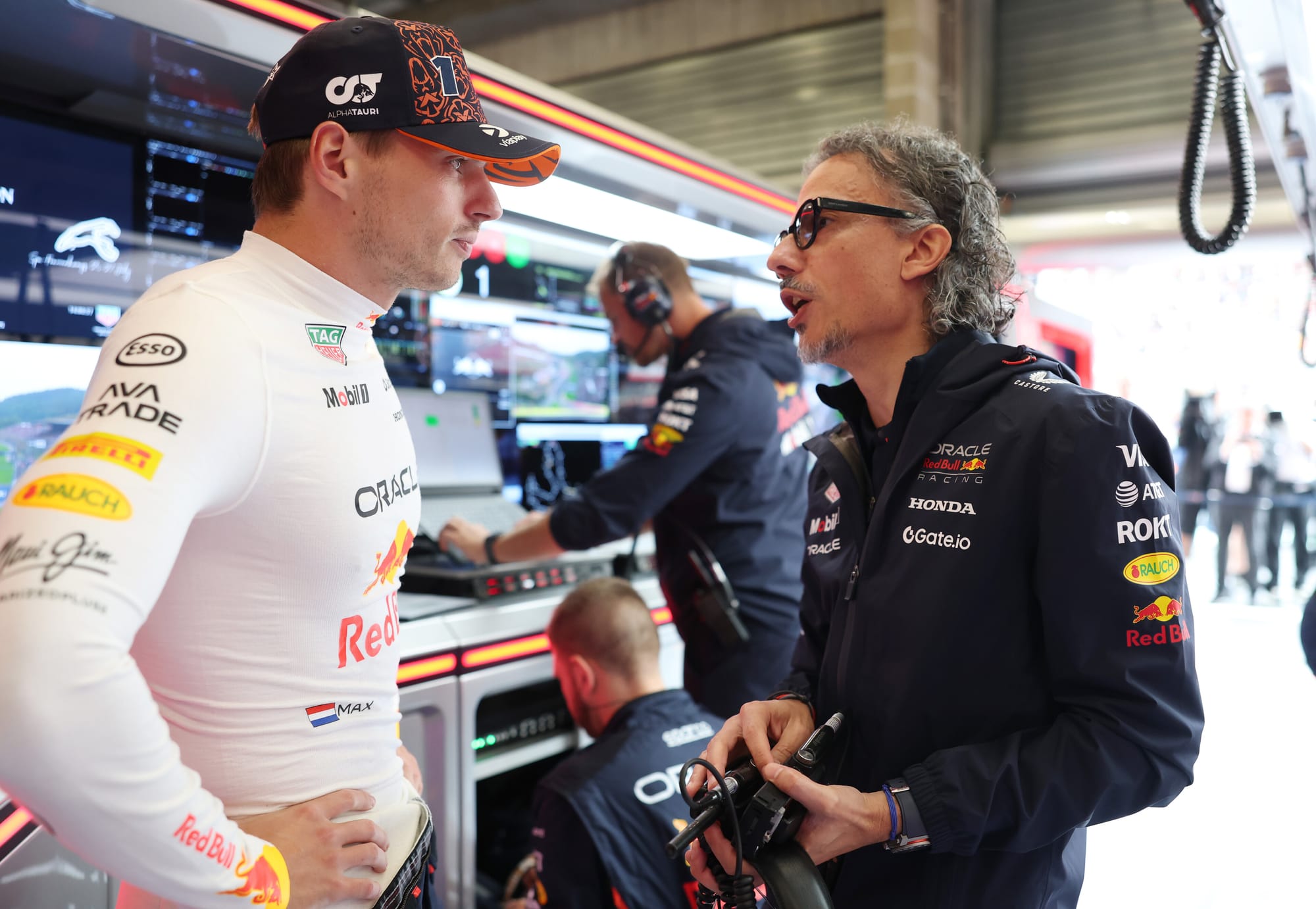
"It's still very early days, but I do like how Laurent is working - very motivated, constantly asking, I think, the right questions to me but also to the team," Verstappen summarised.
Verstappen knows there will not be much benefit from that this year, but said he hopes that "in the coming year or two years we can really see his touch to the team" and that he was "very excited" for that.
Until then, though, Verstappen needs to see out a season in which Red Bull just will not be as competitive as he wants.


